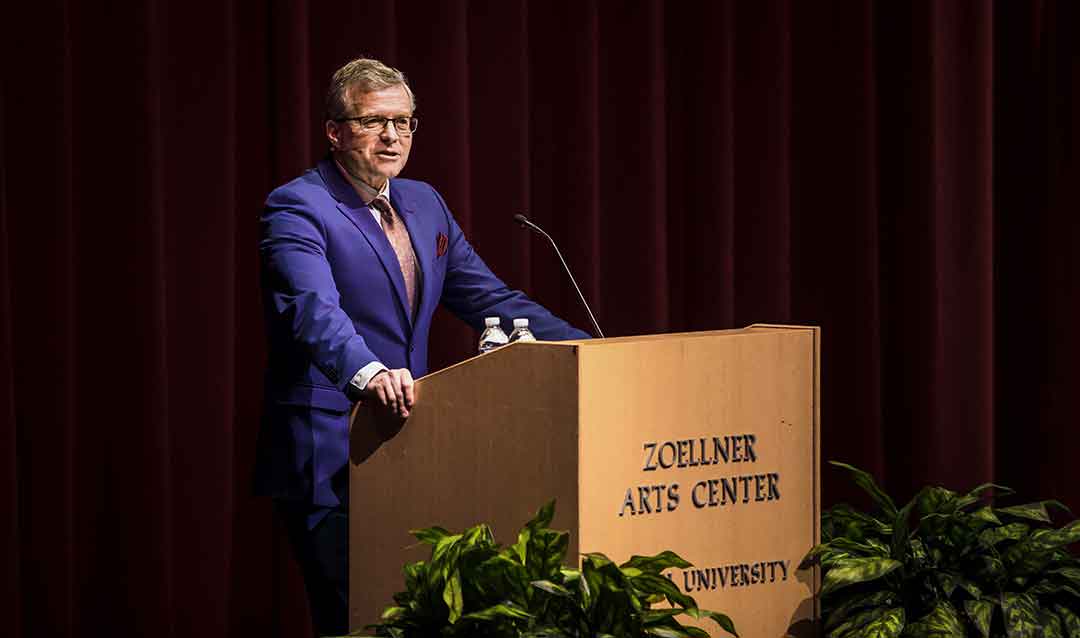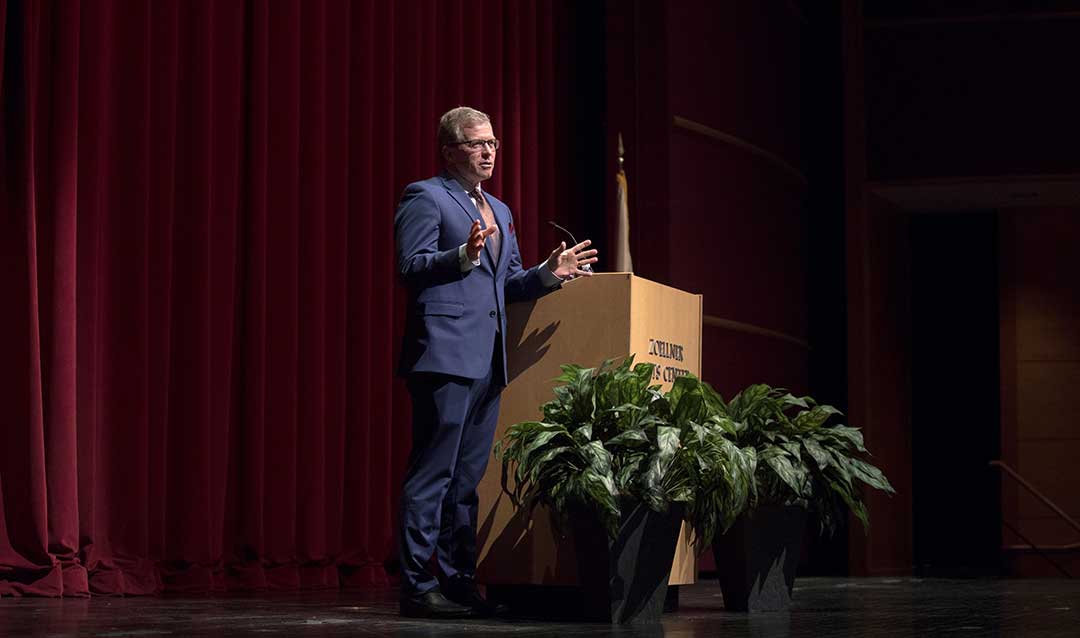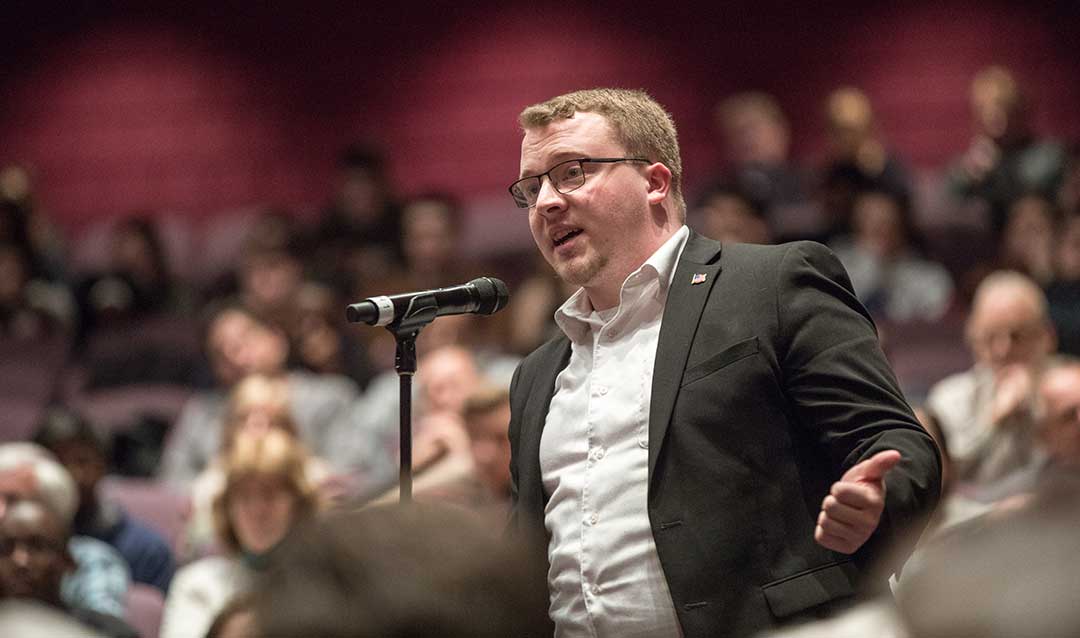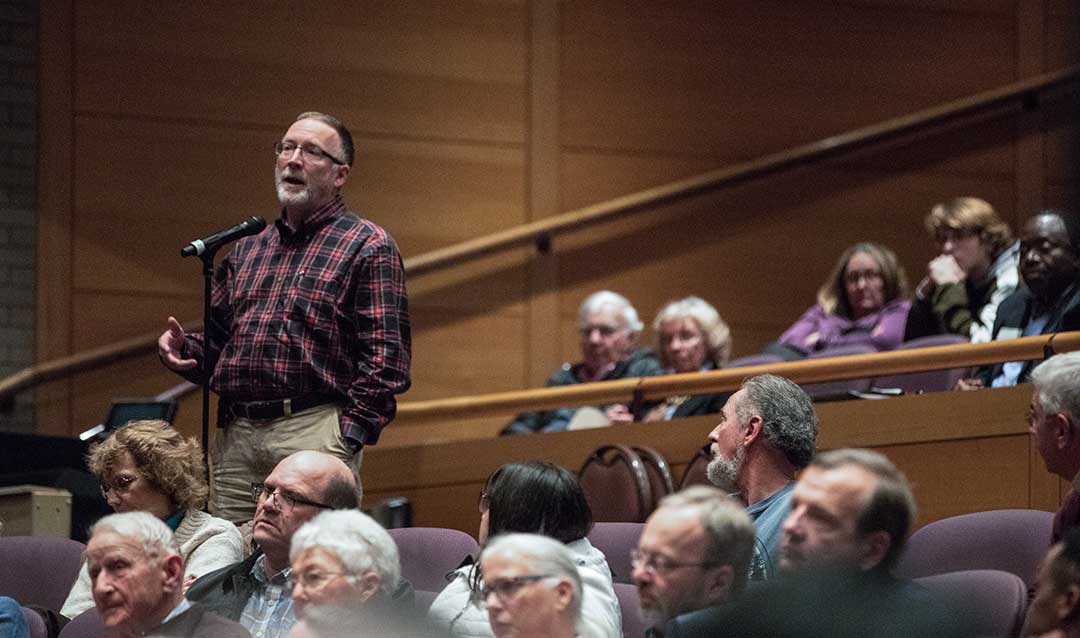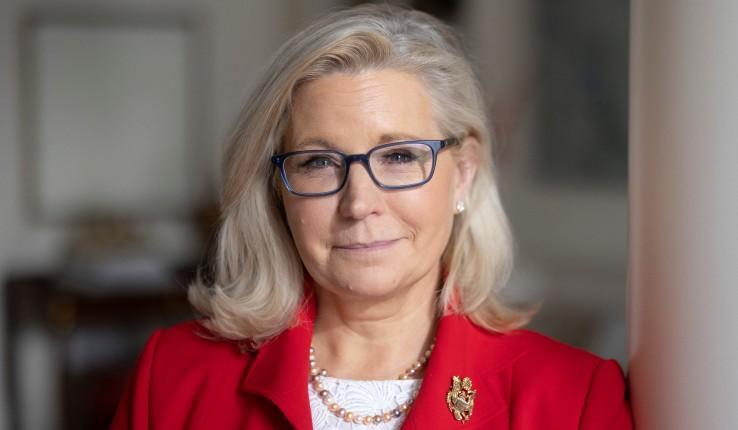Dent emphasized the role of fear, which he said is “taking on an outsized role in the American political system” and is preventing elected officials from doing what they need to do to govern.
Many members of Congress, he said, “are fearful or afraid of their parties’ respective bases...and Congressional leaders are afraid of their members.”
He described members of Congress who were afraid to vote yes because they might get challenged in a primary by a member of their own party. Party leaders, he said, “were afraid to do what they knew they needed to do because they thought there was going to be some backbench insurrection.”
Republican leaders, he added, are afraid of President Trump, “who demands loyalty and remains popular among the Republican base,” and “Congressional Democrats are also increasingly fearful and afraid of extreme elements within their own party.”
Political polarization is not new, Dent said, “but fear takes polarization to a new level. And when you have that level of fear and anger driving all this, polarization leads to political paralysis, where it's just really hard to do just about anything.”
As a result, Dent continued, politics have become more tribal and situational.
He referenced his support of the Trans-Pacific Partnership (TPP), which many politicians on both sides of the aisle opposed.
“I felt awfully lonely in 2016 supporting that. I thought it made strategic sense for a whole bunch of reasons, and it was in our economic and strategic interest, long-term, to do this. But not a lot of people supported it back then.”
However, Dent said, when President Trump pulled out of the TPP, many who once opposed it suddenly supported it “because Trump was against it. It was situational. People just completely flipped.”
A consequence of situational politics, Dent said, is that “we are likely to rationalize or justify bad behavior to stand up for members of our own party...Our system is really a lot less about separation of powers anymore. It's about separation of parties, if you really think about it.
“I found that the President's party in Congress feels it's their obligation to defend the President. This has been going on for some time [and] it's gotten progressively worse over time, and that's where we are.”
Part of the problem, Dent said, is that members of Congress realize there’s little political reward for those who seek consensus or compromise. “Rewards are reserved for those who tack hard to the base,” he explained. “And that’s really the nub of the problem. If these members thought they were going to be rewarded for entering compromises they would do more, but they don't feel that. So until voters actually reward those problem-solvers and consensus-seekers, I don’t think much will change.”
Dent expects the underlying political dynamic that’s driving the disruption and anger and fear to change eventually, but, he said, “it always takes a financial or national security crisis to change that dynamic...I hate to say that.”
He continued: “I am optimistic, though, that at the end of the day Americans are generally a pragmatic and practical people who expect their leaders to behave responsibly and to address the problems that affect them. They don't expect a lot, but they do expect functionality, particularly during times of crisis. So until then I wouldn't expect too much to change, [but] there's always hope.”



